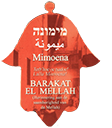Harkabi, Peace Now and the Hasmoneans – Michel Gurfinkiel
This is one of the most disconcerting aspects of the current Israeli crisis: the protesters are banking on foreigners – not only Western public opinion or the Jewish communities of the Diaspora, but also and above all the Biden administration or the European governments – to block judicial reform or bring down the Netanyahu government.
We would be tempted to see in these calls (which call into question, by implication, the independent and sovereign character of the country) ad hoc maneuvers, decided in an emergency: something improvised and desperate.
But the reality is very different.
Recourse to foreigners, not to “defend democracy”, but rather to neutralize it, is in fact a common practice in Israel. Since the 1980s, it was at the heart of the strategies of the Peace Now movement. It was theorized by Yehoshafat Harkabi, a former head of military intelligence turned political activist.
I am submitting to you, on this subject, a text that I wrote in 2002 for the Parisian radio RCJ.
Paris, June 9, 2002
Good morning,
Twenty-four years ago, in the spring of 1978, I visited General Yehoshafat Harkabi.
This former head of Israeli Military Intelligence lived in Givah Tsarfatith, aka French Hill, a new neighborhood in the north of Jerusalem. He received me in his office, a small room entirely lined with books but whose furniture, for the rest, was reduced to a very basic work table, two chairs and a telephone. I was as intimidated as a very young yeshivah student appearing for the first time before a famous Rebbe. And in fact, that was what Harkabi was for me then, a master, the master, the prince of the generation. What I knew then about the geopolitical problems of the Middle East, I had learned in his works, of unparalleled conceptual vigor and clarity of exposition, whether it was his commented translation of the Charter of the PLO or its analyzes on Arab strategies against Israel. I was eager to know more. The Middle East had just changed its face.
A year earlier, Menachem Begin and the Likud had come to power, through elections, putting an end to a labor regime in place since independence. In November 1977, Egyptian President Anwar Sadat came to Jerusalem to propose a peace agreement to the Israelis. Finally, in the preceding days, the Tsahal had just intervened in South Lebanon, as far as the Litani, both to protect the Galilee against terrorist infiltrations and to provide relief, within the framework of the civil war which was then ravaging this country,
to part of the Christian communities. Harkabi would undoubtedly enlighten me on this new configuration, a priori so promising for Israel, and on the new balance of power which was being established in the region.
The interview quickly took a strange turn. The man I had in front of me turned out to be very different from the author I had until then admired. The general line of his remarks was perhaps the same, but he seemed possessed, at certain moments, by a sort of dybbuk which made him say the exact opposite. Little by little, I understood what was happening. Coming from the Labor establishment, Harkabi could not stand that the government of Israel was now led by Begin, even if many ministers, starting with Moshe Dayan, the Minister of Foreign Affairs, were in fact of the same origin. “Begin will lead us to a confrontation with the United States,” he told me, “and that will be the end of us. American support is our lifeline.” Before adding: “These people, Begin, the Likud, have no political or strategic culture. They are illiterate.” I thought I was hearing the good Mr. Guizot, prime minister of King Louis-Philippe, when he supported, towards the end of the 1840s, census-based suffrage…
In the following years, Harkabi became more radical, to the point of becoming the leader of the Peace Now movement (Shalom Akhshav). He wrote new books, notably The Bar-Kokhba Syndrome, to defend his new positions. I read them. Even though I disagreed, I was still impressed by the strength of the argument. But in 1987, Harkabi went too far.
In a summary of his analyzes intended to support the action of Peace Now abroad, the former head of Military Intelligence defended the following reasoning: Israel’s interest was to evacuate the territories conquered in 1967; Israeli democracy, unfortunately, sent to power governments that were not ready to carry out this evacuation; in Israel’s own interest, it was therefore necessary for foreign countries to exert decisive pressure; unfortunately, the only country that had the means, America, did not have it



